2022 – 2023 Graduate Equity Fellows
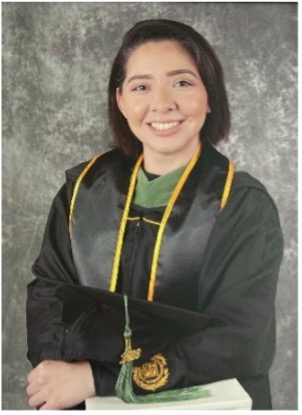
Genecy Chopin
Master of Science in Criminology & Criminal Justice
Genecy’s “thesis highlights the negative impact of homelessness criminalization, by means of police enforcement, on the unhoused population, living in downtown Los Angeles, most of whom were Black or Latino/Hispanic and female.” Through her work, Genecy was able to give her “participants a meaningful experience” and “the opportunity to voice their concerns and opinions.” Genecy’s findings outline recommendations for “policy change and alternative means to address homelessness.”
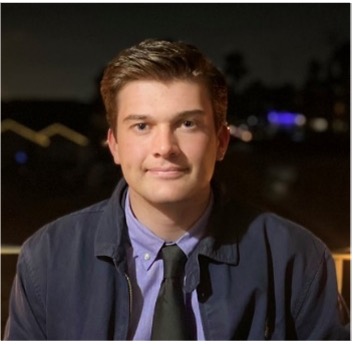
Jack Hanson
Master of Science in Chemical Engineering
Jack engaged in multiphase research on 3D metal printing for prosthetics, pharmaceutical powders that lead to medicines, and “the interactions of water droplets and differing engineered surfaces commonly observed in various industrial applications.” The goals of his studies are “to produce more efficient, efficacious, quality, and safely engineered products” that can reduce “wastefulness,” address the “detrimental impacts” of products on environments and provide “better medical solutions.”
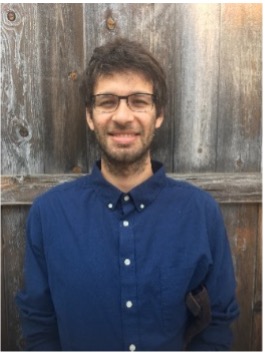
Anise Mansour
Master of Science in Physics
Anise uses material science to address environmental justices that disproportionately impact low-income communities. “I would like to address the benefits of materials research for a more equitable society. “Material science innovations are an important part of working toward correcting environmental justices,” as “physicists can make advancements to smaller, more energy efficient electronics with unique properties,” and create renewable energy technologies.
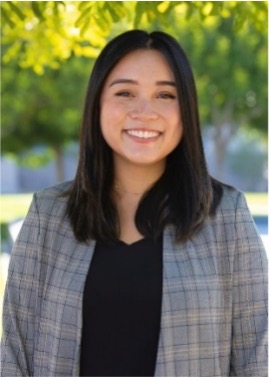
Tuyet-Suong Nguyen
Master of Science in Counseling Student Development in Higher Education
Tuyet-Suong’s “thesis research focuses on AAPI college students and how their experiences of acculturation, discrimination, and internalized racism affect their social justice views.” Her “research shows the importance of challenging misconceptions and learning more about how different factors affect the way AAPI college students view social justice. By understanding the experiences of AAPI college students, higher education professionals will have a better understanding of how to support this student population in a way that makes them feel safe and heard.”
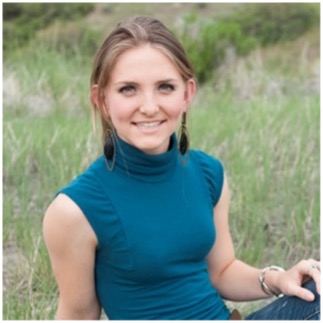
Andriana Niederecker
Master of Arts in Linguistics, Language Documentation & Description
Andriana’s work is in “language documentation and description … to bring more awareness to endangered and underrepresented languages from around the world” and ensure that “the languages and community’s knowledge are recorded in history.” Through language documentation and description, “underrepresented and endangered communities” can be empowered “to sustain, revitalize, and reclaim their ethnic identity from forces that impacted them like colonialism, urbanization, globalization, or climate change.”
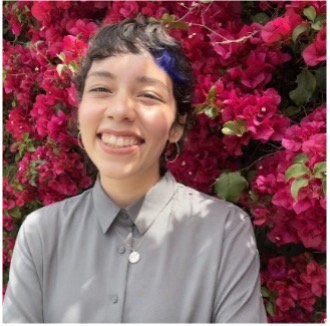
Alitzah Oros
Master of Art in Art History
Alitzah considers the impact of “body-based performance practices that utilize elements of pain and discomfort” to “tell the truth about colonial and neo-colonial atrocities…” “in a way that made visible communitarian resistance efforts advanced by indigenous and afro-indigenous communities in Guatemala, Chile, and parts of the Caribbean archipelago.”

Ariane Mica Segismundo
Master of Arts in Speech-Language Pathology
Ariane Mica investigated the barriers that students of color face in seeking a master’s degree in speech-language pathology. Ariane Mica’s work identifies several areas for support to address the needs of marginalized students to diversify her field and better serve her communities.
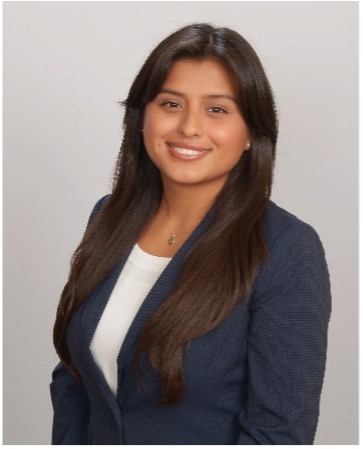
Evelyn Soto
Master of Arts in Political Science
Evelyn engages in scholarly activism that “strives to uplift the LGBTQ community and educate others about queer history and legal struggles for equality.” Specifically, Evelyn examined the narrow construction of gender and sexuality within the U.S Supreme Court opinion of Bostock v. Clayton Co. Evelyn’s research relies on a queer trans-feminist framework and shows that the opinion essentially erases “nonbinary individuals, bisexuals, and asexuals.” This has implications for queer trans-feminist jurisprudence and politics.
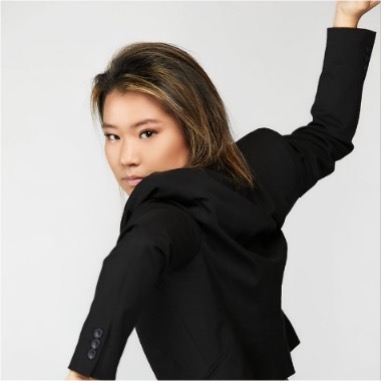
Azuki Umeda
Master of Fine Arts in Dance
Azuki created a performance entitled how i became kinder, & kinder that is a self-reflection revealing “a vulnerable side of being a first-generation Asian woman”, while also making her “feel comfortable in [her] own skin.” Through this work, Azuki discovered her “true voice” and is “excited to keep growing and learning more about the self…and fully embrace [her] diverse background.”
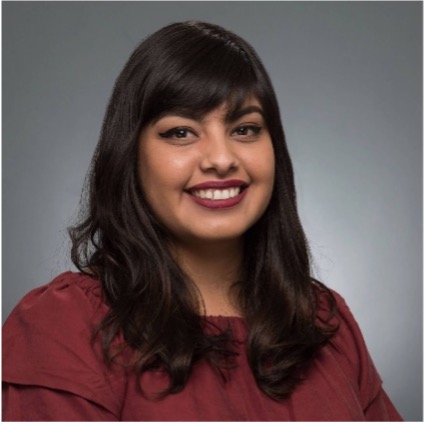
Aimee Vaquera
Ed.D Higher Ed & Leadership
Aimee relies on research to inform University policy and practices that support undocumented transfer students throughout the CSU. Through a qualitative study, Aimee explained that being undocumented is one of many intersecting identities that shape the campus they choose to attend, the relationships they create, their priorities, and how they seek-out and navigate resources. Her study helps eliminate equity gaps throughout the CSU.
Michelle Castillo
MS Biochemistry
Michelle studies Type 2 Diabetes (T2D), which “disproportionately affects minority groups and is increasingly affecting younger age groups.” Michelle studies glucose homeostasis in which “cells fail to respond to insulin signaling to reduce blood glucose” by investigating the effects of various isoforms on insulin resistance. Michelle hopes that this work can help“ predict disease onset and develop effective treatments for T2D.”
Shayan Sheikhrezaei
PhD Engineering & Computational Math





